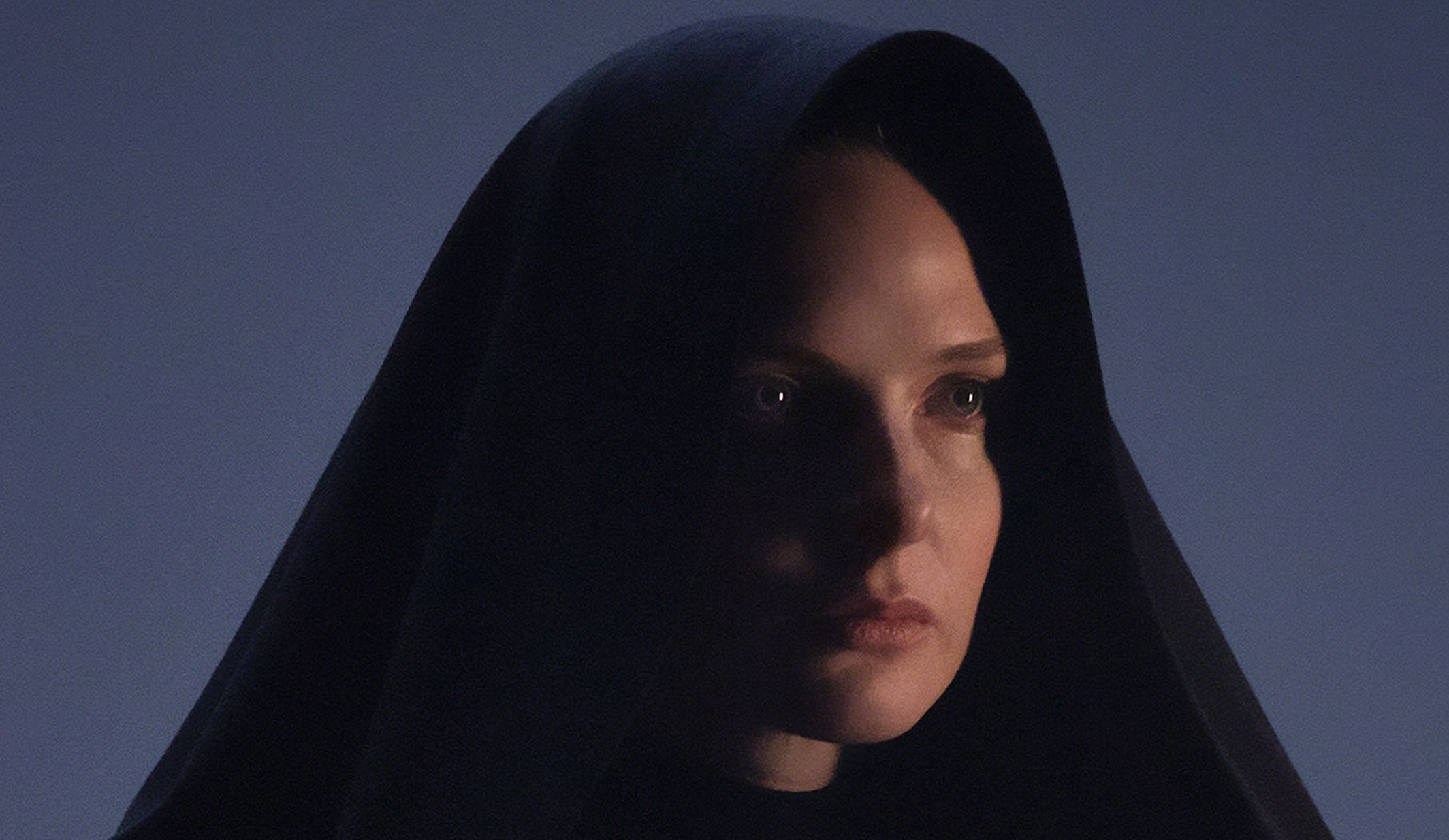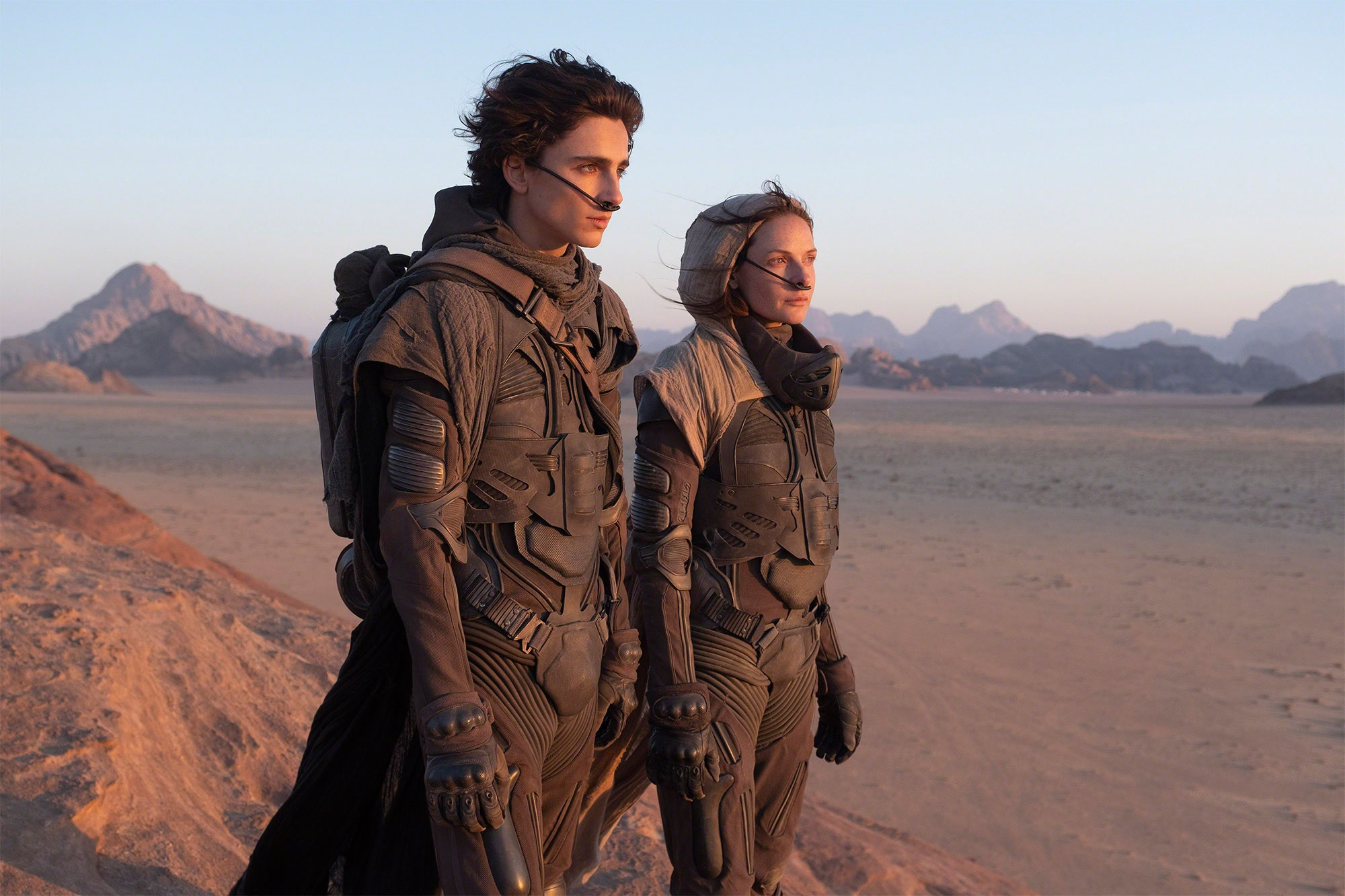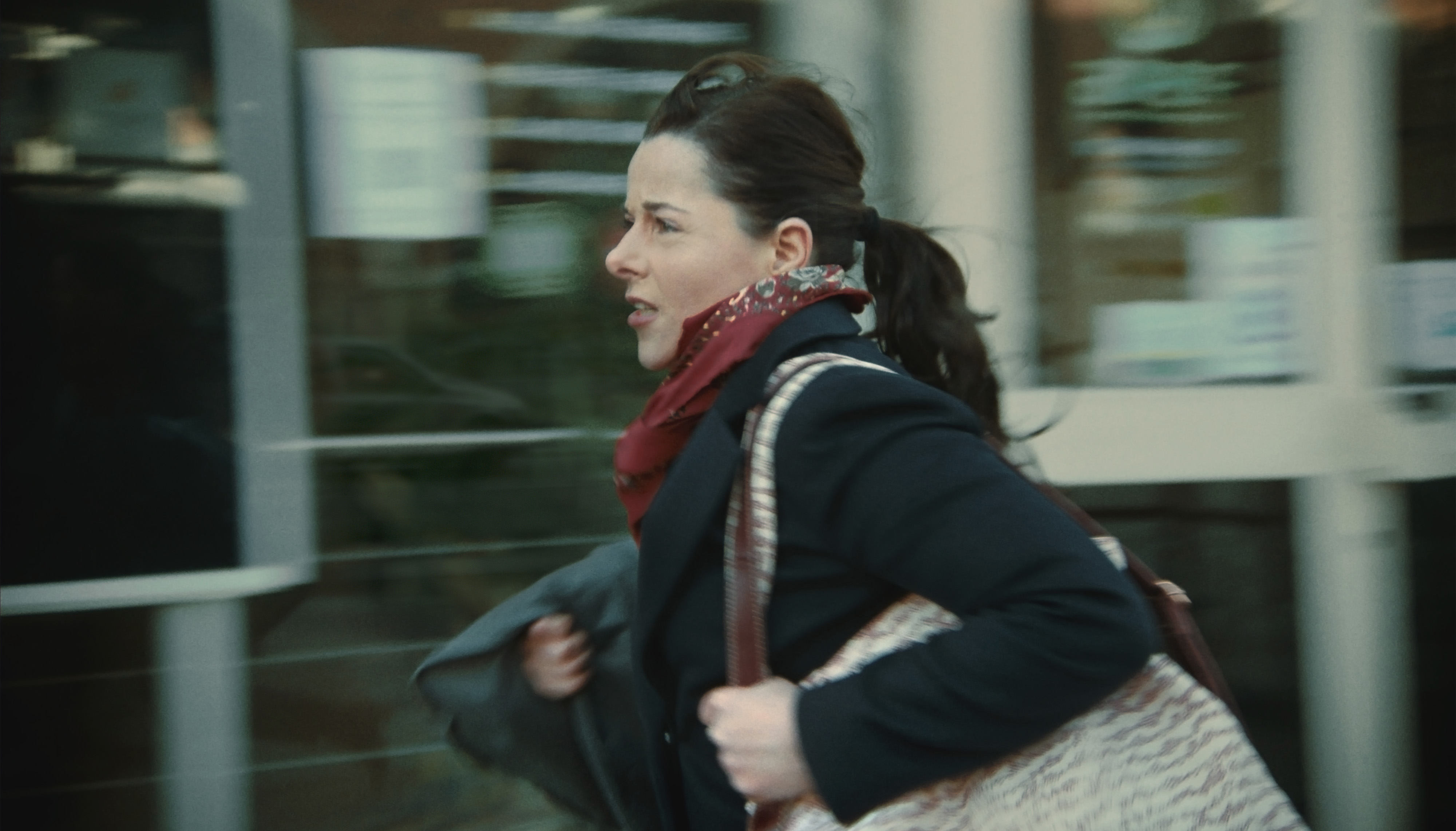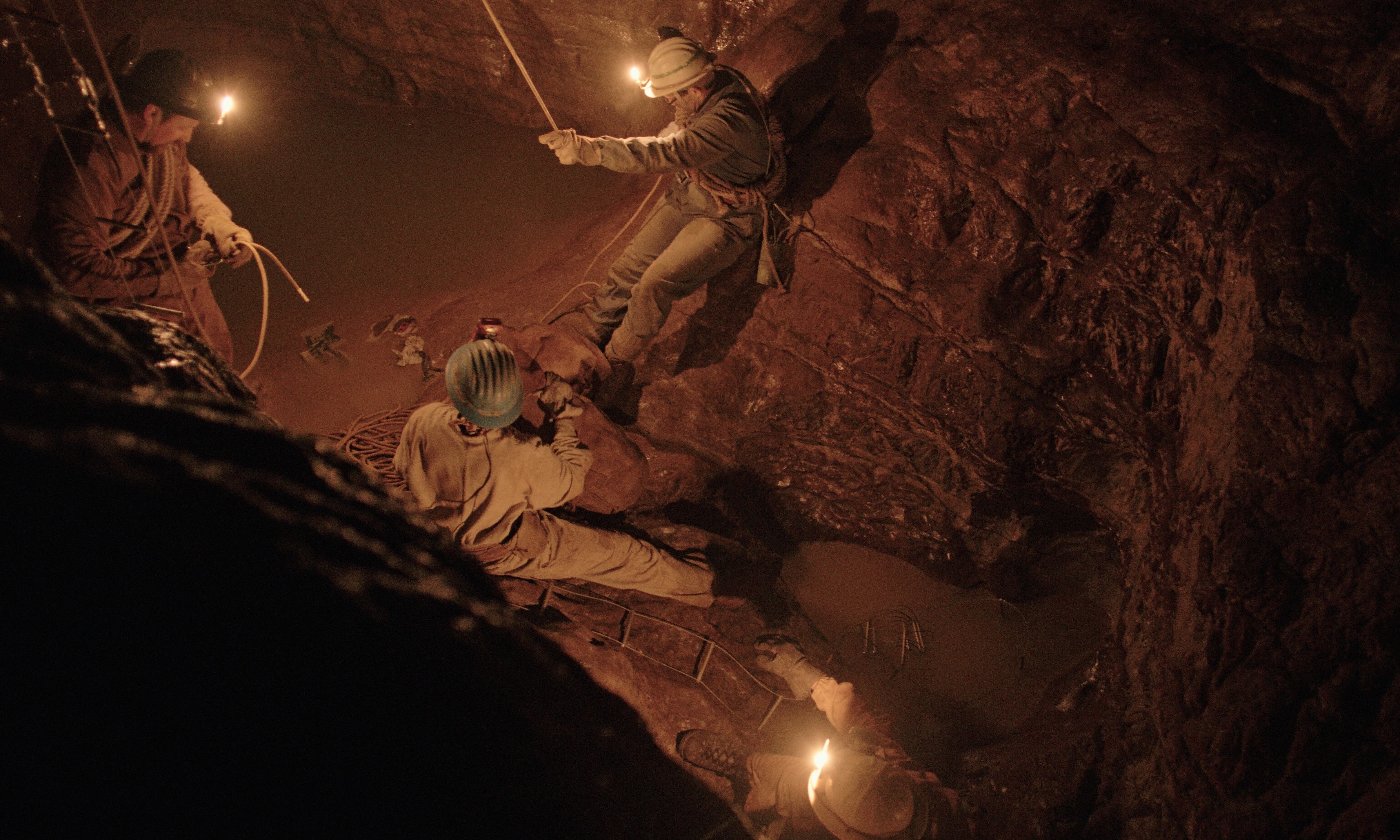by Elisa Giudici

Today Venice lived its climax, with screenings of two of the most awaited movies of the entire year: Pablo Larraín's Spencer and Denis Villeneuve's Dune. The latter in particular is perceived by everyone as an event, even by Venice standards (where a lot of the protagonists of the last Oscar races have been premiered). The fight for tickets to the screenings was merciless. Every show sold out in a matter of seconds and the artistic director of the Festival, Alberto Barbera, tried to answer the general audience and press's complaints with multiple tweets. Moreover, it is the first movie in the five years I've been attending in which every ticket holder is required to seal his phone in a bag for piracy prevention. Warner Bros faces more than a calculated risk here: Dune's box office can be the dividing line between the cinema experience as we used to know and something new and yet uncertain...
SPENCER (Pablo Larraín)
I know I am in minority here, because almost everyone seems to like the latest Larraín's entry, praising Kristen Stewart's performance to the point the Oscar buzz is already started. As a huge admirer of Larraín's cinema, I would be a little disappointed if, of all his works, Spencer is the one making him a well-established director on the international scene. It is not a bad movie but it it feels as if Larraín is fighting against the weaknesses of a screenplay that's very far from his sensibility as a filmmaker. I was impressed by his first comment during the press conference: "I did this movie because I wanted to direct something my mother would love". I was under the impression he was addressing the distance between this movie and everything he has done before. It is strange to see a title so similar for themes and aesthetics to Jackie (they could be a duology) taking a precise, opposite direction from the previous movie despite coming from the same starting point. Noah Oppenheim's work in portraying Jackie Kennedy - both as a widower and a member of American political mythology - was so close to Larraín's approach and style. On the other side, Steven Knight writes for him "a fable from a true tragedy" that asks the Chilean director to sugar the pill with a wishful fantasy. Spencer is a perfect movie to answer the audience's deepest need: to see Diana as the sad princess we know while giving us the illusion of an impossibly happy ending.

Usually, Larraín doesn't console with his movies but makes you deeply uncomfortable. Maybe the problem is with me because I can not understand why we need to see this version of Diana. I tend to like unfaithful portraits if the way they distance themselves from the historical truth has a precise purpose. I am not sure what is Spencer aiming for, except for giving us a gentler version of what happened. In one scene, Diana is considering how people in the future will remember her, with which name. The way the movie denies the obvious answer ("the sad princess") to introduce an alternative description ("a shock") caught me off guard. A lot of scenes (Anna Bolena's in particular) could have ruined the atmosphere of the biopic, but Larraín is excellent in avoiding involuntary missteps.
What about Kristen Stewart's performance? Well, she is quite good at creating a believable version of Lady Diana, but I did not expect such a level of excitement and Oscar buzz. I already knew she can be incisive and memorable if well directed. My impression is that some audience members will finally see her full potential here, while some of us already knew she could dazzle thanks to Personal Shopper and Cloud of Sils Maria. One thing is sure: Larraín is amazing in helping actresses reach their full potential and earn Oscar buzz. I am just afraid Hollywood is going to ask him to follow this path for a long time.

DUNE (Denis Villeneuve)
Such a divisive movie and I am so glad of it because a good adaptation of Frank Herbert's legendary novel by the same title could not be a crowd-pleaser. I plan to write a full review of this title in the next hours, as there is a lot to say about this huge project. Bur first a couple of spare thoughts as an admirer of Herbert's work, an avid SFF reader, and a fan of Denis Villeneuve: it is a magnificent start of something with an incredible magnitude and a risky operation. Without the so much-needed second part, this movie alone leads to nothing concrete. Villeneuve makes a promise I hope he will be able to keep. I would advise you to see it even if you are not into the genre: it's a real experience, even if you don't think you'll like it. If possible, go to the movie theatre. Consider going to one with an IMAX screen and a really good sound system: on the technical side, Dune is the state of art in the cinematic experience and deserves the best experience possible. The cast is impressive, but if I have to highlight only one performance I will choose Rebecca Ferguson's Lady Jessica: she nailed the complexity and ambiguity of the role of a mother, a loved concubine, and a political animal, on a visceral level. I loved so many of hte costumes, too. I'm dying to see artworks and extra content about those. Hans Zimmer's soundtrack is so hanszimmerish, yet perfect to add a layer of mysticism to this story.

À PLEIN TEMPS (Eric Gravel)
Strong Dardenne vibes with this one. It's a small yet powerful movie about how our working schedule and personal life can drive us to pure exhaustion. This movie is uncomfortable, almost creepy on some level. We follow the relentless chronicle of the daily life of a single mother who tries to earn her wage by fighting against the whole world: public transports, ungrateful bosses at work, and kind people she can not avoid to deceive or exploit to arrive home before midnight at the end of the day. It is heartbreaking to see such a bright, resourceful, and intelligent woman using her skill to stay afloat instead of realizing her full potential. On an even sadder note the people around her suggest that she stop trying to realize herself as a professional or to leave the small village (where she wants to raise her kids) that is too far from the overcrowded Paris. I had the terrible realization that my own daily schedule has something in common with the protagonist. Every review or comment about this movie seems to share this same unsettling emotion. A huge shout out to the amazing Laure Calamy for her performance as the protagonist: I expect her to be one of the strongest contenders to win a prize in the Orizzonti section.

IL BUCO (Michelangelo Frammartino)
Seeing this entry at 10 pm after a really long and busy day was a mistake: I fought to stay awake the whole time. Il buco (the hole) tries to faithfully reconstruct an incredible expedition that was secretly undergone by a group of young speleologists in 1961. They wanted to be the very first to explore one of the deepest caves discovered in the world at the time, so they start the exploration of "a deep hole in the ground" in Pollino, Calabria (Southern Italy). The movie show this incredible story by following the dangerous, breath-taking descent into the cavity, while also showing what the rest of Italy was doing during those incredible hours. Sounds exciting, right? It was not for me.Hitchcock once said, "cinema is life without the boring parts". Well, not Frammartino's cinema, which shows excruciatingly long shots of shepherds calling their sheep or people watching television. At first, the alternation between the exploration of the cave and the normal life above is a good choice, but it gets tedious quickly. It's so convinced it has to be faithful to the story that it avoids any reasonable, pragmatic, effective way to tell it to the audience.
More Venice coverage
- Elisa's Diary #1 Parallel Mothers and Power of the Dog
- Elisa's Diary #2 The Card Counter, Hand of God, The Lost Daughter
- Nathaniel in Venice #1 Parallel Mothers
- Nathaniel in Venice #2 Power of the Dog, Madeleine Collins
- Nathaniel in Venice #3 Atlantide, The Lost Daughter